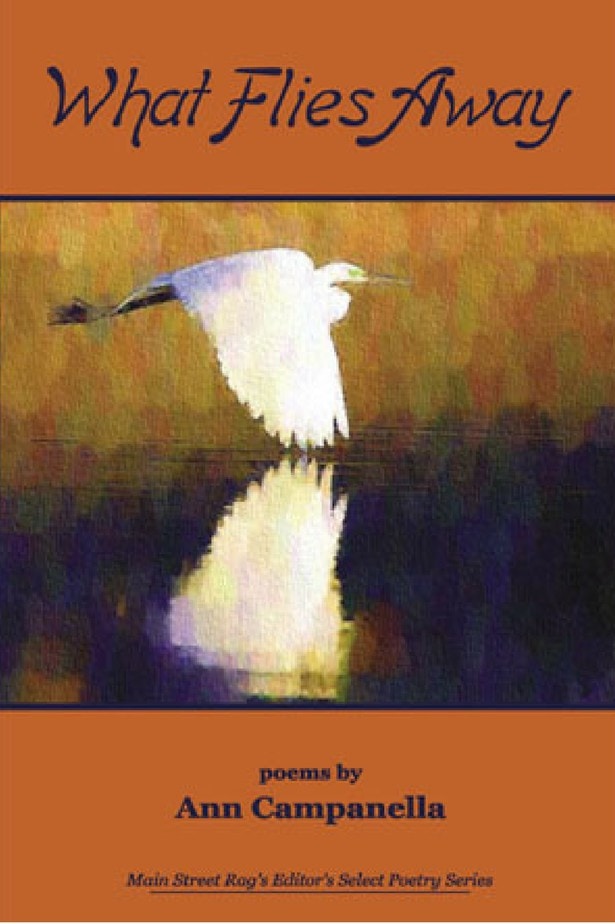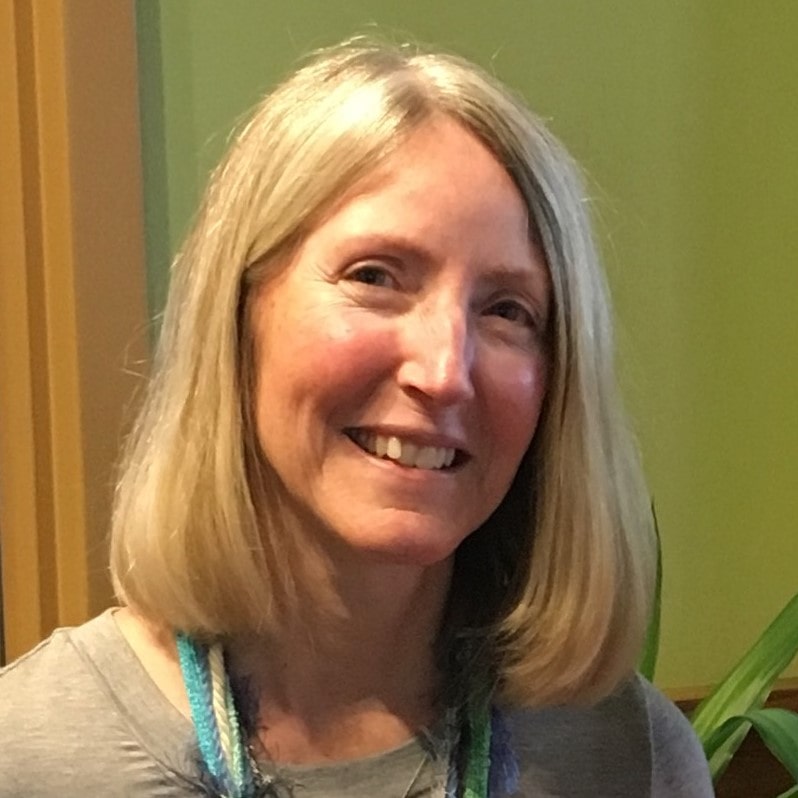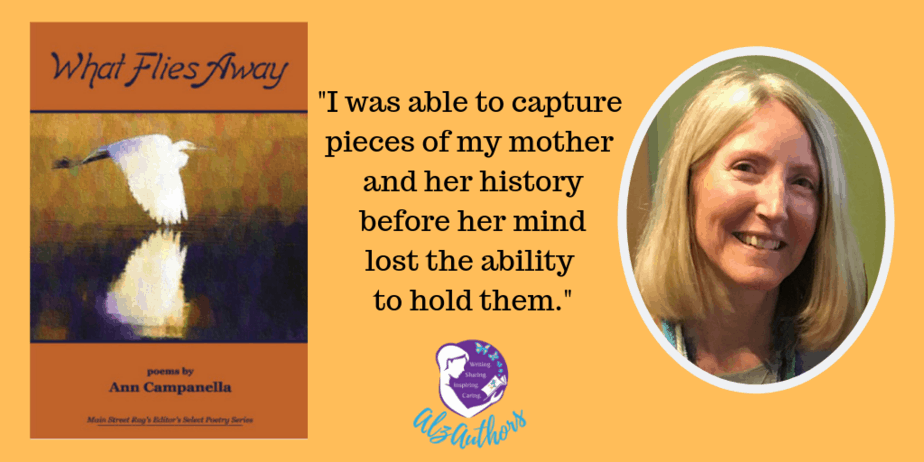 By Ann Campanella
By Ann Campanella
Twenty-five years ago, I began to notice changes in my mother. She was forgetful and more emotional than usual. Little did I know she was beginning her long and painful descent into Alzheimer’s disease.
What Flies Away tells the story in poetry of my mother’s journey through this disease and the path of grief our family traveled. It begins with a poem called “What she doesn’t know.” As I take her for “a ride,” we are “chatting about birds/and insects and other things that fly away, until the hospital rises like a castle before us.”
Her behavior had become unmanageable, so our family made the decision to try to get some help. But my mother didn’t understand. As a nurse led us through the halls of the hospital, Mom said, “This looks like a place for crazies.”
Everything in me fought against it, but I had to leave my mother, in hopes that she would receive the help she needed. Of course, it wasn’t that easy.
The book is divided into three sections that focus on my mother’s illness, my father’s sudden death and the miracle of my daughter’s birth. But my mother’s Alzheimer’s is the backdrop against which everything else takes place. This disease of forgetting made me look at my own life differently.
My mother was 41 when I was born, and my own daughter was born 40 years later after a long period of infertility. I existed in the middle of an age continuum. I couldn’t help but be aware that everything I experienced with my own mother might come to pass for my daughter. This telescoping of time brought an intensity to the interactions between my mother, my daughter and me.
Poetry provided both an outlet for my grief and a way to preserve moments of beauty. I was able to capture pieces of my mother and her history before her mind lost the ability to hold them. The process of writing transformed even the most painful experiences into something I could cherish.
I hope this book will provide comfort to those who find themselves as family members, caretakers or friends of someone with Alzheimer’s.
I was deeply honored when my poetry mentor, Anthony Abbott, Professor Emeritus of English at Davidson College, wrote these words about my book: “We are riveted to these poems, as step by step we experience the loss, the grief, the mourning, and then the astounding resurrection….This is what poetry is about.”
Two of the poems in the collection, “The Chase” and “How to Grieve,” received the Poet Laureate Award, the highest honor of the North Carolina Poetry Society (NCPS). In my mind, the honor for these awards goes to my parents whose caring and love inspired these poems.
What Flies Away, a full-length collection of poems, was released by Main Street Rag Publishing Co. and was part of the Editor’s Select Poetry Series. It earned second place in the Oscar Arnold Book Award (Poetry Council of NC) and was named a notable finalist in the Brockman-Campbell Book Award (NCPS).
My mother—Elizabeth Williams—died after 14 years of living with Alzheimer’s. I was pleased to fund the NCPS Poetry of Courage Award in her name to encourage others to write poetry in the face of devastating loss. My mother understood the healing power of words. I hope my poems will touch those who are grieving and provide a moment of solace.
 Bio:
Bio:
Ann Campanella is a manager of AlzAuthors. Formerly a magazine and newspaper editor, she turned to creative writing to nourish her soul. Her memoir, Motherhood: Lost and Found, was named “one of best Alzheimer’s books of all time” by Book Authority. Twice, Ann has received the Poet Laureate Award from the North Carolina Poetry Society. Ann lives on a small horse farm in North Carolina with her family and animals. Learn more about Ann and her writing at www.anncampanella.com.
Connect with the author:
@authorAnnC (Twitter)
@anncampanella.author (Facebook)
horses_2nd_time_around (Instagram)
https://fieldsofgrace22.wordpress.com (blog)
Purchase What Flies Away here.



6 Responses
Ann, congratulations on another book! It sounds beautiful, and I can’t wait to read it!
Thank you so much, Tracie.
Ann, thank you for this beautiful book. I read it four or five times in the months before my mother passed in June of last year(2018). It was beautifully written and touched and comforted me immensely as I thought of my own journey of being a care partner for both of my parents who have now passed from Alzheimer’s. Thank you for sharing your journey; it was uplifting.
David, thank you so much for your kind words. I very much appreciate them.
Kudos to you, Ann! I don’t think I’ve read poetry about the Alzheimer’s journey before . . . congrats on your awards!
Thank you so much, Susan.